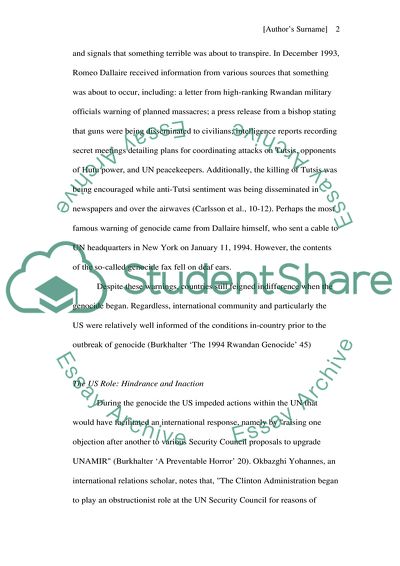Cite this document
(“Could the US Government have prevented the Rwanda Genocide Research Paper”, n.d.)
Retrieved from https://studentshare.org/miscellaneous/1578648-could-the-us-government-have-prevented-the-rwanda-genocide
Retrieved from https://studentshare.org/miscellaneous/1578648-could-the-us-government-have-prevented-the-rwanda-genocide
(Could the US Government Have Prevented the Rwanda Genocide Research Paper)
https://studentshare.org/miscellaneous/1578648-could-the-us-government-have-prevented-the-rwanda-genocide.
https://studentshare.org/miscellaneous/1578648-could-the-us-government-have-prevented-the-rwanda-genocide.
“Could the US Government Have Prevented the Rwanda Genocide Research Paper”, n.d. https://studentshare.org/miscellaneous/1578648-could-the-us-government-have-prevented-the-rwanda-genocide.


